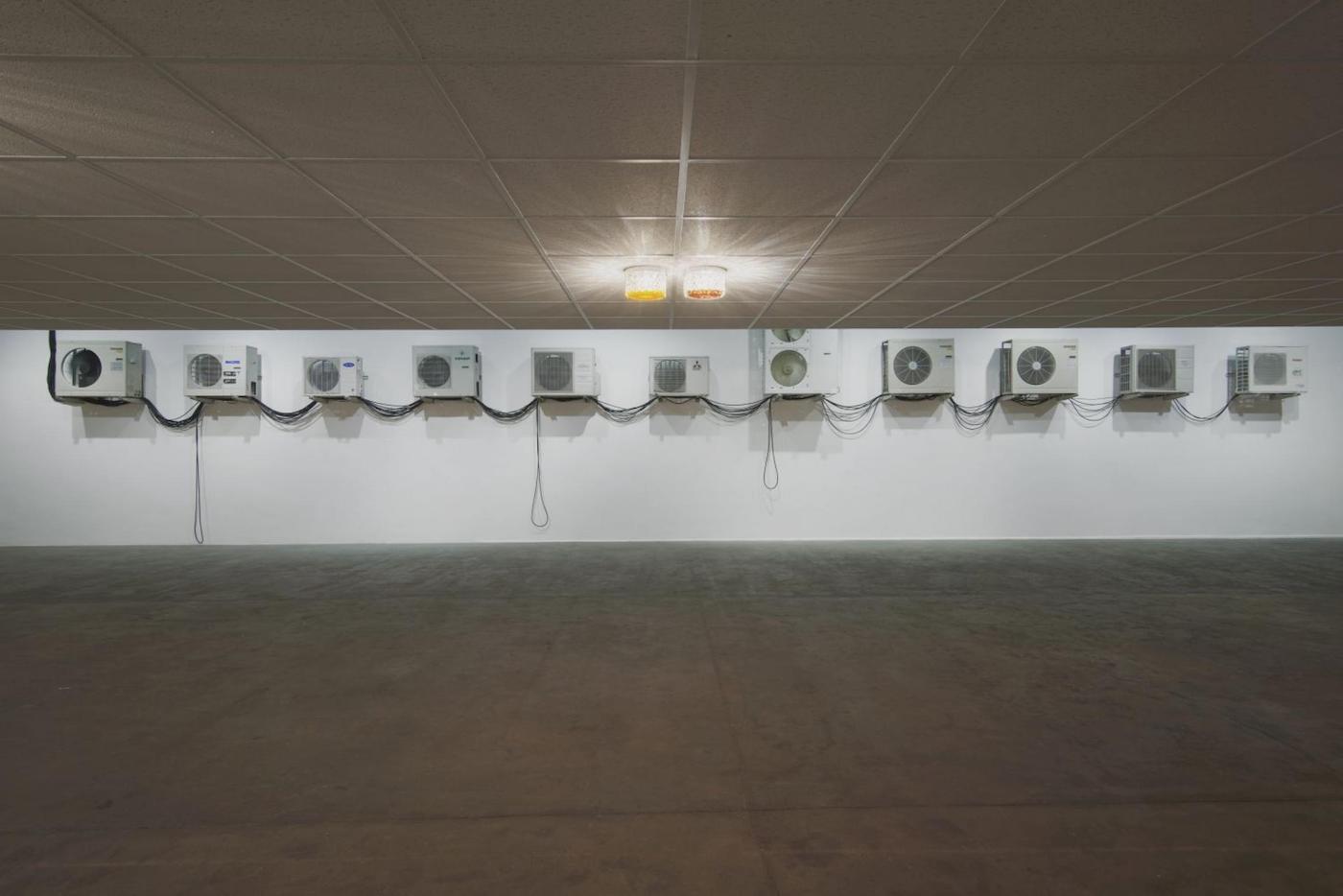Among Laleh Khorramian and Fernando García-Dory, Otobong Nkanga selected Ima-Abasi Okon as winner of the BALTIC Artists’ Award 2020. She will represent her work in a group exhibition opening in July 2021.

Ima Abasi Okon at Chisenhale Gallery. Photo Andy Keate
BALTIC Centre for Contemporary Art, Gateshead announces the third BALTIC Artists’ Award, a biennial art award selected by three established international artists. This year, Mika Rottenberg, Hito Steyerl and Otobong Nkanga, were each invited to nominate the work of an emerging artist. New work by each of the selected artists, Ima-Abasi Okon, Laleh Khorramian and Fernando García-Dory, will be presented in a group exhibition opening July 2021.
BALTIC Artists’Award is a biennial award established to recognise artists deserving of an international platform and offers a step-change moment in their career, each receiving an exhibition at BALTIC, GBP 25,000 to realise new work and a GBP 5,000 artist fee.
Selected by Otobong Nkanga, artist Ima-Abasi Okon works with sculpture, sound and video to produce installations that explore the historical and political charge of materials.
Ima-Abasi Okon works with sculpture, sound and video to produce installations that explore the historical and political charge of materials. She employs exhibition-making as an exercise in syntax; adopting linguistic and grammatical structures as a way of complicating the construction of knowledge. In her recent works, Okon has repurposed industrial and handmade objects, removing their use-value or function, in order to explore the formation of taste, subjectivity, productivity and excess.
Selected by Mika Rottenberg, artist Laleh Khorramian’s practice combines the cosmological thinking of ancient cultures, their complex mythologies, and spiritual vocabularies within her own imagined worlds—synthesizing them into histories that are both futuristic and ancient.
Laleh Khorramian’s work spans stop-motion animation, monotypes, portraits, collage, paintings and clothing. Her practice combines the cosmological thinking of ancient cultures, their complex mythologies, and spiritual vocabularies within her own imagined worlds — synthesizing them into histories that are both futuristic and ancient. By removing cultural or historical specificity from her narratives, she uses the ordinary to portray the epic, the universal and the transient, in a search for worlds beyond our own. Khorramian approaches her work as a series of experiments, with the process of chance as a starting point for discovering possibilities of the unknown. In a vacillating process between macro and micro views of painted landscapes and incidental spaces, Khorramian integrates fiction with spectacle and theatre to explore the transience of living matter and its cycles of depletion and plenitude.
Selected by Hito Steyerl, artist Fernando García-Dory´s work engages with the relationship between culture and nature, as manifested in multiple contexts, from landscape and the rural, to desires and expectations in relation to identity, utopia and the potential for social change.
Fernando García-Dory´s work engages with the relationship between culture and nature, as manifested in multiple contexts, from landscape and the rural, to desires and expectations in relation to identity, crisis, utopia and the potential for social change. Interested in the harmonic complexity of biological forms and processes, his work addresses connections and cooperation, microorganisms, social systems, traditional art languages and collaborative agro-ecological projects and actions. Since 2009 García-Dory has developed INLAND, a collaborative platform and para-institution dedicated to agricultural, social and cultural production. INLAND aims to dissolve individual agency and authorship, and functions in different forms in different countries. It’s wide variety of projects include publishing books, producing shows, making cheese, and advising the European Union Commission on the use of art for rural development policies. Recently INLAND has received awards from the Council of Forms, Paris and the Daniel and Nina Carasso Foundation to finalise New Curriculum, a project devoted to training artists and rural agents of the future.
More Editorial